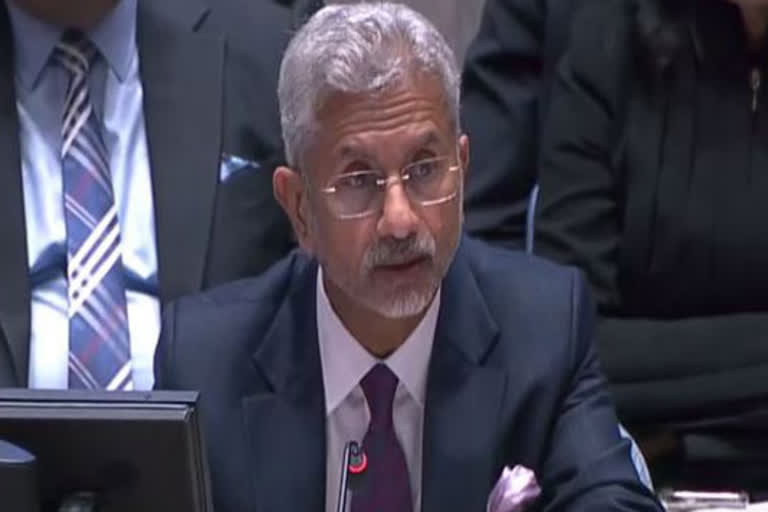"Don't use 'pitai' for Jawans": Jaishankar slams Rahul New Delhi:External Affairs Minister Dr S Jaishankar on Monday slammed Congress MP Rahul Gandhi for using the term 'pitai' (beating) in the context of the recent skirmish between India and China in Arunachal Pradesh's Tawang sector.
"We have no problem with political criticism but we should not disrespect our jawans. I have heard that my understanding needs to be deepened. When I see who is giving the advice I can only bow and respect. The word 'pitai' should not be used for our jawans," Dr Jaishankar said in the Lok Sabha on Monday while he passed the Anti-Maritime Piracy bill.
His reaction came days after Rahul Gandhi made remarks in Jaipur during Bharat Jodo Yatra in which he accused the government of downplaying the threat posed by China by stating that Beijing was preparing for war but Prime Minister Narendra Modi's administration was sleeping.
Gandhi further said that the External Affairs minister should "deepen" his knowledge of China. "If we were indifferent to China then who sent the Indian Army to the border? If we were indifferent to China then why are we pressurizing China for de-escalation and disengagement today? Why are we saying publicly that our relations are not normal?" Jaishankar said.
Also read:Rahul Gandhi's comments break morale of our armed forces: BJP
"We should not criticize our jawans directly or indirectly. Our soldiers are standing at a height of 13,000 feet in Yangtse and guarding our border. They should be respected and appreciated," he added.
During the day, Jaishankar spoke on the India-China face-off during India Today's India-Japan conclave as well. He said that Indian Army will not let China change the status quo along the Line of Actual Control (LAC) "unilaterally" and its current deployment along the frontier was not seen before.
Jaishankar said the deployment of the Army was made on the orders of Prime Minister Narendra Modi and the Army did not go to the frontier region because Rahul Gandhi asked them for it. "Today we have a deployment of the Indian Army on the China border that we have never had. It is done in order to counter Chinese deployment which was scaled up massively since 2020," Jaishankar said.
He was replying to a question during India Today's India-Japan conclave. "If we were in denial then how is the Army out there? The Army did not go there because Rahul Gandhi asked them to go. Army went there because the prime minister of India ordered them to go," Jaishankar said, replying to Gandhi's allegations that the government was hiding the fact that China took Indian territory along the LAC.
The Indian and Chinese troops were engaged in a fresh clash in Yangtse area of Arunachal Pradesh's Tawang sector on December 9. The incident came amid the over 30-month border standoff in eastern Ladakh.
"People will say things; they may not be credible, they may sometimes contradict their own positions, their own behaviour. All that could happen. But the fact is what is finally the proof of the pudding. The proof of the pudding is that the Indian Army is deployed today to counter any attempt to unilaterally change the LAC," Jaishankar said.
Also read:Modi govt 'rewarding' China instead of 'punishing' it for incursions: Kejriwal
The external affairs minister said it is the commitment of the Indian Army to not let China change the LAC unilaterally. "I am saying that it is the obligation of the Indian state and that is the duty and commitment of the Indian military that we will not let any country, and in this case China, change the LAC unilaterally," Jaishankar said.
"I think it is fairly obvious and most people in the country see that. You can make your polemical points. I think people will treat it as politics," he added. Asked about Delhi Chief Minister Arvind Kejriwal's criticism of the government for increasing trade volume with China notwithstanding the border row, he said that India continues to import from that country because there was no adequate focus on the manufacturing sector.
Jaishankar said not much attention was given to the MSME sector and building supply chains as well after India opened up its economy in 1991. "When somebody says why imports are coming out of China, there are imports coming out of China because for 30 years, you did not give your industry the kind of support and protection you should have," Jaishankar said.
"It is only now in recent years that you have started to do it. Now you cannot reverse in five or 10 years what you have done in 30 years," he said.
